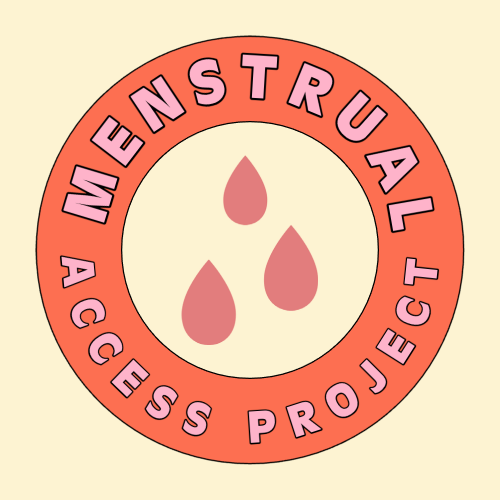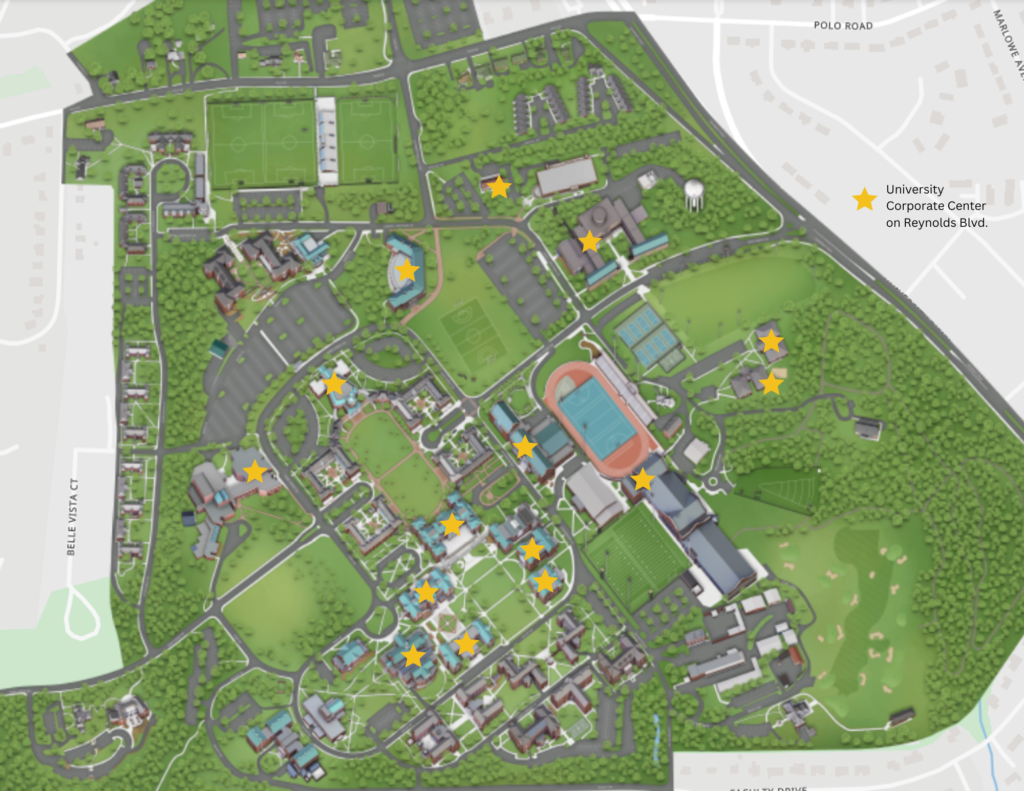Menstrual Access Project
The Menstrual Access Project is an initiative led by the Women’s Center and Student Government to increase access to free menstrual products on campus. Product kiosks can be found in each academic building courtesy of the following departments:

- Office of Academic Advising
- Anthropology
- Art
- Communication
- Classics
- Office of the Chaplain
- Office of Diversity & Inclusion
- Study of Religions
- Education
- Employer Relations
- English
- Environment & Sustainability Studies
- Health & Exercise Science
- Immigration Services & Support
- Information Systems
- Office of Personal & Career Development
- Psychology
- Safe Office
- School of Law
- School of Business
- School of Divinity
- Spanish/French Studies/Italian Studies
- Sports Medicine
- Theatre & Dance
- Office of Wellbeing
- ROTC
- The Writing Center
- Women, Gender & Sexuality Studies
- ZSR Library
Kiosk Locations
Menstrual Access Project kiosks (7.5″D x 6″W x 4.4″H) are stocked with liners, regular and heavy flow pads, and four sizes of tampons. Kiosks can be found in the following areas of the designated campus buildings:

Office of the Chaplain – Benson 317
LGBTQ+ Center – Benson 311
Women’s Center – Benson 314
Department of Communication Office – Carswell 117
School of Divinity – Suite 108
Divinity Student Lounge – 12(Go all the way downstairs or down the elevator and to the far right)
Department for the Study of Religions – 118
Student Engagement Suite – Farrell Living Room
Employer Relations – A05/A54
Spanish/French Studies/Italian Studies – Greene 323
Psychology – Greene 415
Computer Science – Manchester 238
Sports Medicine – Ground Floor
Dept. of Physics – Olin 100
Environment and Sustainability Studies Program
Department of Anthropology Office
Security Desk – 1st Floor
ISS – Reynolda 17
Office of the Chaplain – Reynolda 8
Office of Academic Advising – Reynolda 125
Office of Diversity & Inclusion – 3rd Floor
Office of Personal & Career Development – Reynolda 230
University Counseling Center – Reynolda 117
Military Science Department/ROTC
Department of Art Office – Scales 110
Department of Theater & Dance – Scales 219
Women, Gender & Sexuality Studies – Tribble A105
Department of Education Office – Tribble B201
Department of English Office – Tribble C201
Department of Classics Office – Tribble C301
Information Systems Office
Dept. of Biology – Office Common Room
Safe Office – Basement of Reynolds Gym
Office of Wellbeing – A321
Health & Exercise Science – WOPC 0171
School of Law – 1220, 2209, 3219
Room 228B
The Writing Center – ZSR 426
* Kiosks are also available at the Reynolda House Museum, the Interdisciplinary Graduate Program office at Brookstown, and the Professional School in Charlotte, NC.
About the Products
LOLA, founded by women, creates period and sexual wellness products with you in mind. Products are made from quality, natural ingredients, no toxins or dyes. LOLA believes reproductive care should be safe and accessible for everyone and is committed to making it a reality. LOLA is dedicated to shining a light on the racial and social disparities that contribute to reproductive inequity, and has donated over 6 million products.
Need a restock?
To restock product in the current kiosks, please let us know by filling out this form.
Want to learn more?
Looking to get involved with providing products across Forsyth County? Join the Women’s Center and the Office of Civic & Community Engagement as volunteers with the local chapter of The Period Project!
Any questions regarding expansion across campus, volunteering, or product donations can be directed to womenscenter@wfu.edu.

